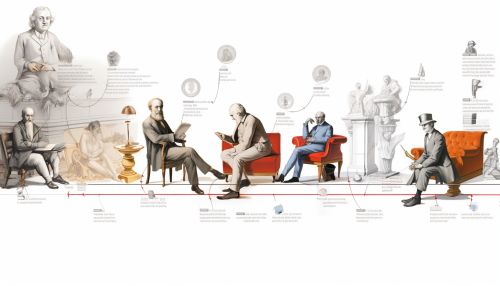Cognitivism
Overview
Cognitivism is a psychological approach that focuses on the mental processes involved in learning and behavior. It is a theoretical perspective that considers the mind as an information processor. Cognitivism emerged in the mid-20th century, countering the dominant behaviorist model of the time by arguing for the importance of understanding internal mental states.
Historical Background
The roots of cognitivism can be traced back to the work of early psychologists and philosophers who were interested in understanding the mind and its processes. However, it was not until the mid-20th century that cognitivism emerged as a distinct theoretical perspective. This was largely in response to the limitations of the behaviorist approach, which focused exclusively on observable behavior and largely ignored internal mental processes.


Key Concepts
Cognitivism revolves around several key concepts, including cognition, information processing, and mental representation.
Cognition
Cognition refers to the mental processes involved in acquiring knowledge and understanding. These processes include perception, memory, thinking, problem solving, and language.
Information Processing
Information processing is a core concept in cognitivism. It refers to the way the human mind transforms sensory information. The information processing model describes how information is received, processed, stored, and retrieved.
Mental Representation
Mental representation is another key concept in cognitivism. It refers to the way information is stored in the mind. Mental representations can take many forms, including images, words, and concepts.
Cognitive Psychology
Cognitive psychology is a branch of psychology that applies the principles of cognitivism to understand how people learn, think, and remember. Cognitive psychologists study a wide range of mental processes, including perception, memory, attention, language, problem-solving, and decision-making.
Cognitive Science
Cognitive science is an interdisciplinary field that studies the mind and its processes. It brings together research from psychology, computer science, philosophy, linguistics, anthropology, and neuroscience. Cognitive science uses the principles of cognitivism to understand how the mind works, and how it is similar to and different from other information processing systems.
Cognitive Neuroscience
Cognitive neuroscience is a branch of neuroscience that uses neuroimaging techniques to study the neural basis of cognitive processes. It aims to understand how the brain supports mental activities, drawing on both the principles of cognitivism and the methods of neuroscience.
Criticisms and Limitations
While cognitivism has made significant contributions to our understanding of the mind and behavior, it is not without its criticisms and limitations. Some critics argue that cognitivism focuses too much on internal mental processes and neglects the role of the social and cultural context in shaping cognition. Others argue that the information processing model of the mind is overly simplistic and does not capture the complexity of human cognition.
